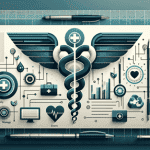This spring, I will publish my third nonfiction book, “ChatGPT, MD,” which explores the immense changes that generative AI will bring to healthcare.
It is my prediction—based on robust data and compelling evidence—that generative AI technologies like ChatGPT will become as integral and essential to future physicians as the stethoscope was for centuries.
The power of GenAI lies in its ability to serve as a colleague for healthcare professionals and as a source of expertise for patients, empowering both in ways previously unimaginable. Used by doctors and patients together, ChatGPT will improve health, ease demand on physicians, and generate the time clinicians need to restore the doctor-patient relationship.
As I prepare for publication, I seek your input on a critical component: the book’s subtitle. Please click the link below to vote on the option that best captures the essence of “ChatGPT, MD” and the promise that it holds.
Which subtitle best captures the essence of 'ChatGPT, MD' and the promise that it holds?
- "How AI-empowered patients & doctors can take back control of American medicine" (59%, 120 Votes)
- "The rise of the AI-empowered patient & the rebirth of American medicine" (36%, 74 Votes)
- Other (add a comment below) (5%, 11 Votes)
Total Voters: 205
*Click VOTE to lock in your answer*
Thanks for voting! To see the final results of this survey, and for access to timely news and opinion on American healthcare, sign up for my free (and ad-free) newsletter Monthly Musings on American Healthcare.
* * *
Dr. Robert Pearl is the former CEO of The Permanente Medical Group, the nation’s largest physician group. He’s a Forbes contributor, bestselling author, Stanford University professor, and host of two healthcare podcasts. Pearl’s newest book, “Uncaring: How the Culture of Medicine Kills Doctors & Patients,” is available now. All profits from the book go to Doctors Without Borders.







A comment has been posted!
While I applaud your optimism in this area, and share your enthusiasm, I think it is also important to acknowledge that the technology in AI is still in its infancy and still has many misperceptions and possible issues as well. So the subtitle that it is essentially medicine 2.0, goes too far in my estimation. Something more directed, “AI provides promise for new advancement in medicine – A new starting point.” Something like that, still positive, but somewhat more reserved than the bold statement that this is the rebirth of American medicine. – Just my two cents.
I concur that what exists today (OpenAI’s GPT-4 and Google’s Gemini) is in its infancy. I’ve called it a “toy” in previous articles. But at the rate that generative AI is improving (doubling in power every year by conservative estimates), it will be 30x more powerful in 5 years. The book invokes that horizon, which is what led me to be a bit bolder in my predictions. What’s clear is that people need to begin to become more comfortable with the technology today in order to be prepared for tomorrow.
‘How are you and your doctor can make the most of this addition to your care’
Maybe use this as an alternative for a subtitle
How you and your doctor can make the most of this new addition to your care.
The subtitle in the choices, suggests the “surgeon tendency” to be a “control freak”…..!
Make it a relationship… the “Doctor and Me” situation.
“COMPASSIONATE”….. should be a major subject in Medical School training programmes
Change choice #2 to read:
“How AI empowers patients & doctors to take back control of American medicine”
Looking forward to reading (or listening)!
Good luck with the next book!
AI Powered Physician and Patient: getting USA MEDICINE to where it should be between…… “PHYSICIAN and PATIENT.”
The subtitle in the choices, suggests the “surgeon tendency” to be a “control freak”…..!
Make it a relationship… the “Doctor and Me” situation.
“COMPASSIONATE”….. should be a major subject in Medical School training programmes
“How AI-empowered patients & doctors can take back control of medicine”
To make the book a little more international.
I concur that the applications that work in the U.S. can be applied everywhere. The challenge I have is that I am not an expert in the healthcare systems of these nations and don’t want to appear presumptuous in telling other nations what to do. I appreciate your comment.
Likely that chatbots will replace people in online encounters in medicine as it has with Xfinity, Amazon, and others. The ability to not pay people and yet say you are providing a service is too tempting for business to ignore.
I agree completely. That is why I think it is so important for clinicians to embrace the technology and lead the way. As I note in the book, EHRs should have been tools to improve clinical care, but they turned into approaches for billing and coding. We can’t allow that to happen with ChatGPT and other generative AI applications.
Predictions on how AI will change the practice of medicine
Can I trust AI (ChatGPT?)
How AI-Empowered Patients and Doctors Are Facilitating the Rebirth of Quality American Medicine
Thanks